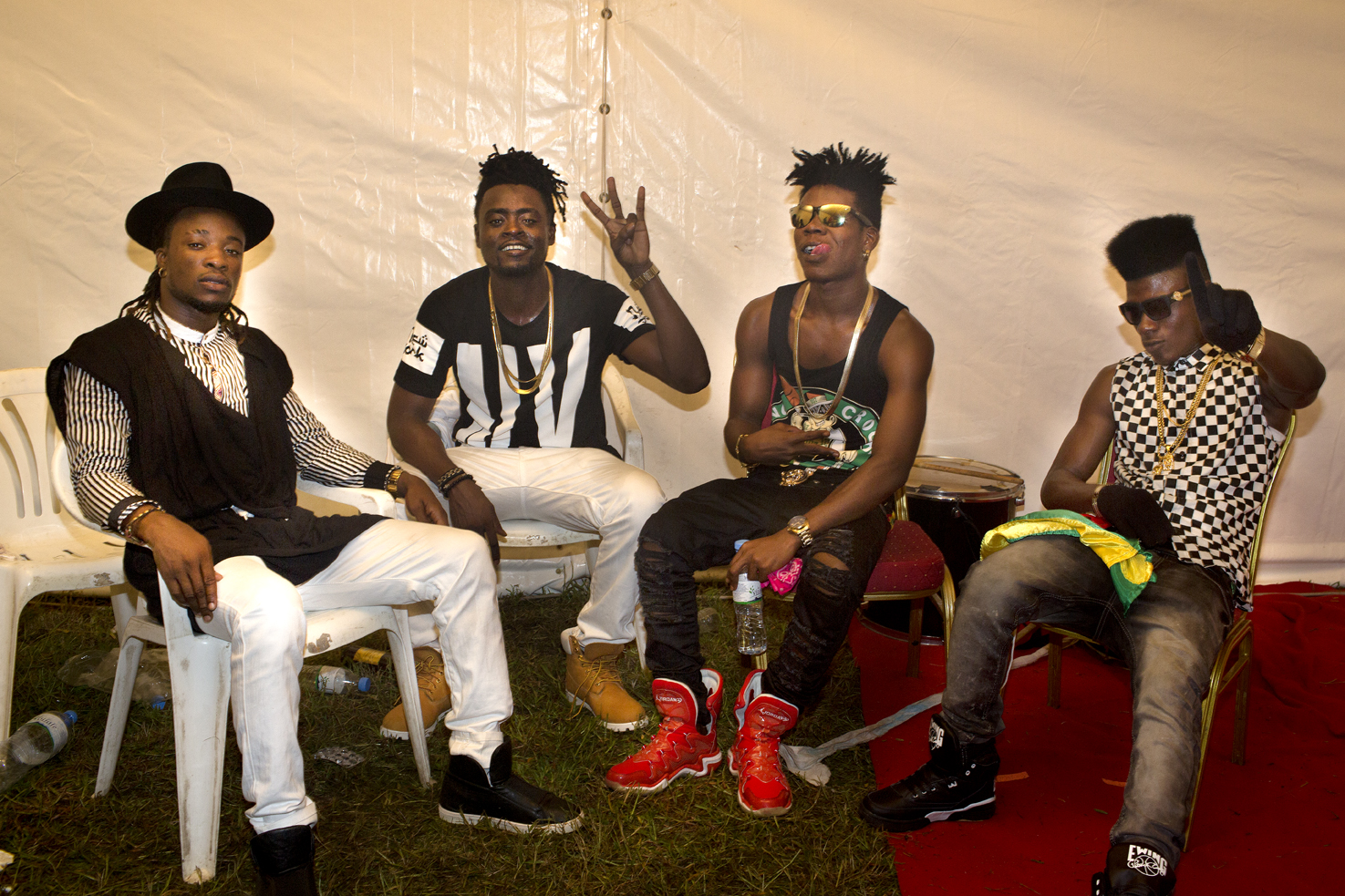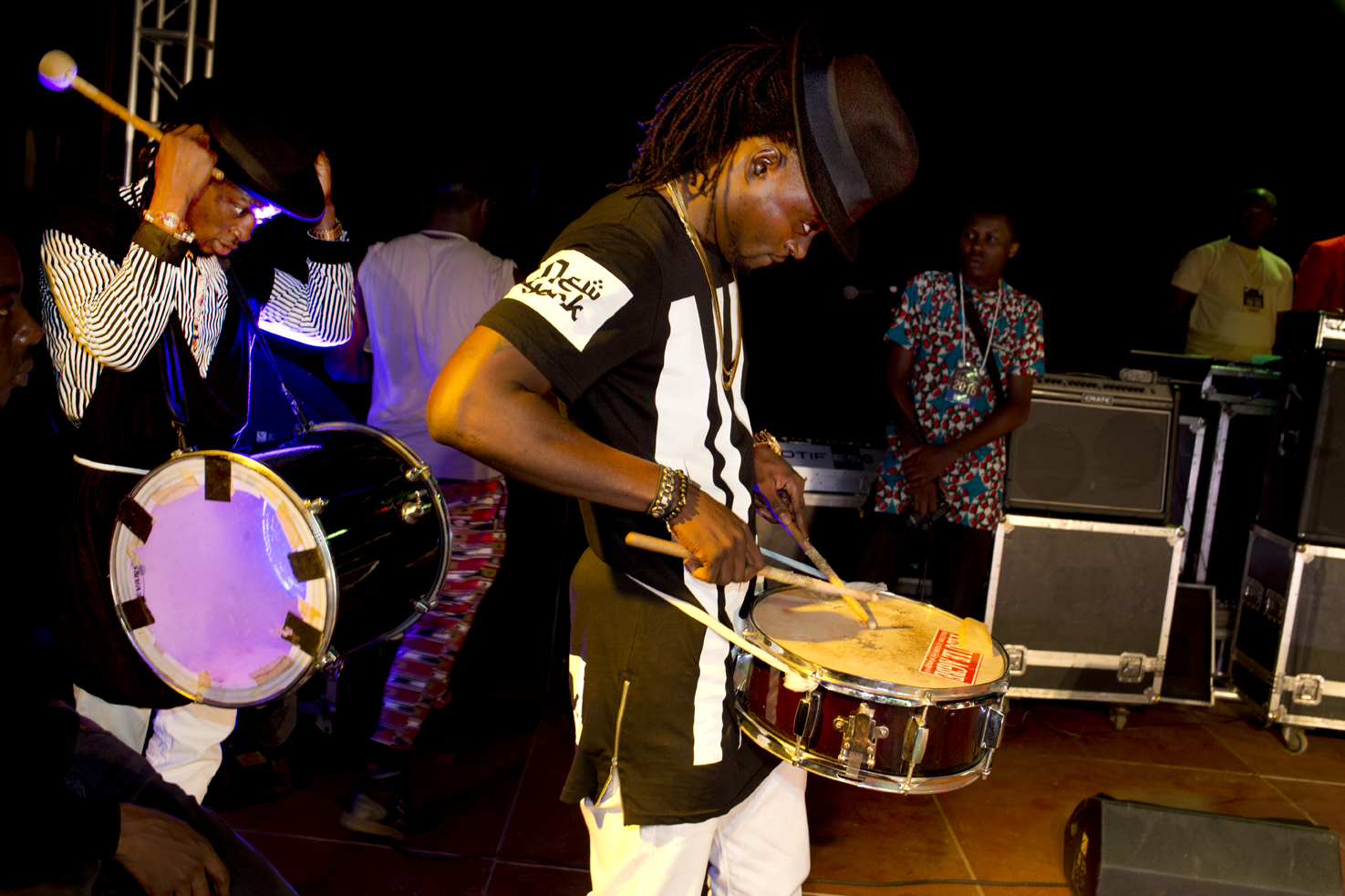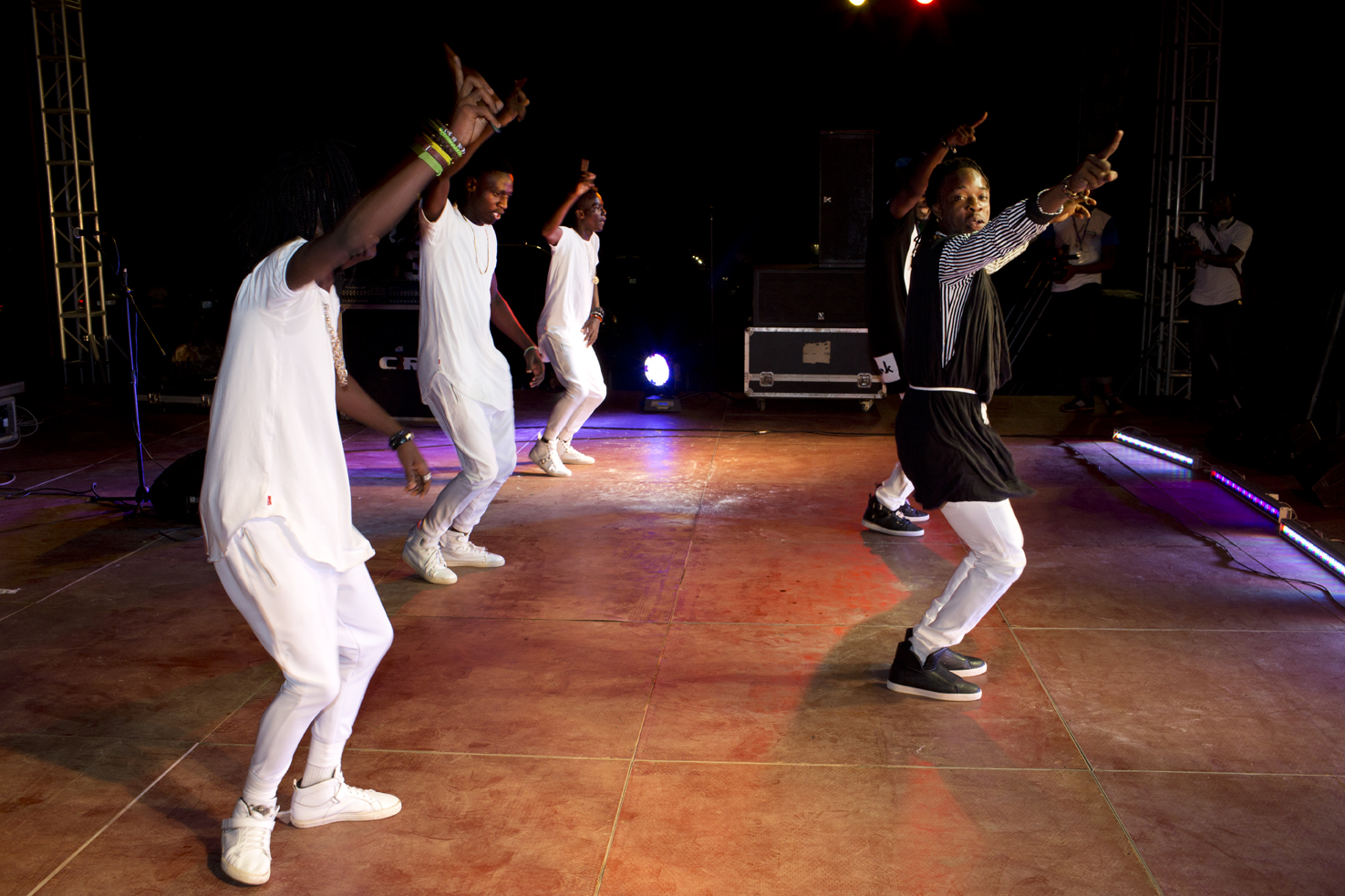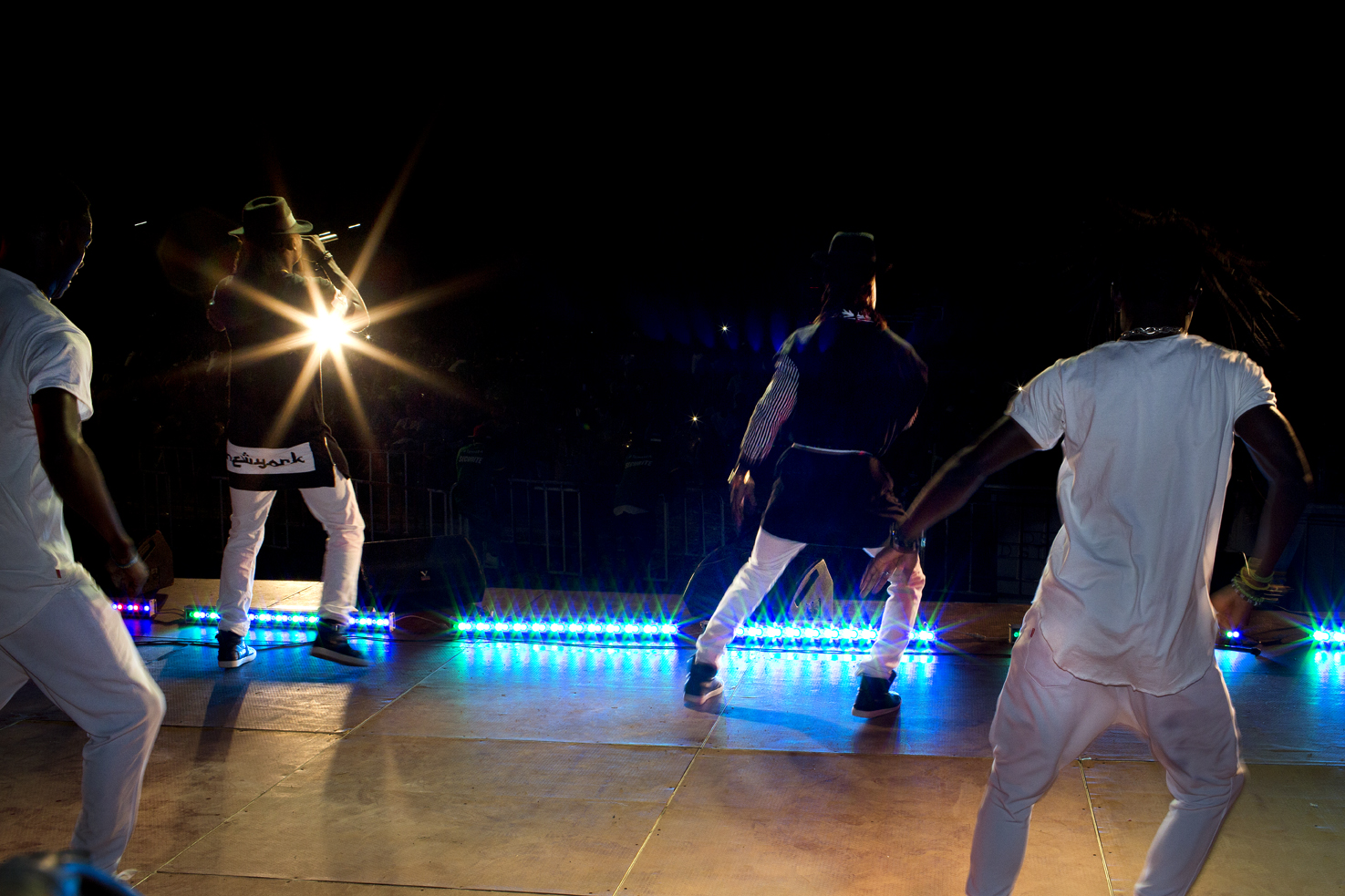Bonzy and Jamy (right to left) from Tach Noir look like they have a lot of fun. In the video for Alaweg, one of their latest singles, they danced around some camels looking fly in turbans and desert robes. It was the Tach Noir take on the Spaghetti Western.
Whether they’re in turbans or on the stage at the SEA Festival, you can tell they enjoy each other’s company; they’ve know each other since they were small. Anthony Jacques Mawuena (Bonzy) and James Kokou Gadziwue (Jamy) formed a band in 2007. Tach Noir has been pumping out Gweta dance tunes ever since.
You might not have heard of Gweta and, if you have, it’s probably in connection with that other Togolese band, Toofan, who are bit better established. But they’re not rivals; the two groups are tight. They came up with the Gweta dance together in 2013 in Masta Just’s studio when the bands collaborated on the track Follow My Dance.
‘It is because of a lot of praying and after a lot of battles that we are here today.’
They wanted to find something that symbolised Togo. The dance they came up with Gweta – which involves a lot of rhythmic pointing with your index fingers – has a simple message behind it: keep away from the haters. If Toofan are going to help them spread that positive message and act as ambassadors for Togo, well so much the better they think.
The guys are firmly concentrating on conquering west Africa at the moment. Last year they decided to release their single Nonene, featuring Sikavi Lauress, in Benin first. They’ve recently collaborating with TNT from the Côte d’Ivoire. And now their latest single Lanbokor is a collaboration with Floby. Keeping it local is really important to them. As they’ve said in other interviews, ‘We must consume African things whether they’re Togolese or Beninese or whatever. People like saying that “Africa is the future”. Well yes it might be but we’ve got to contribute to that.’
We caught up with them at the SEA Festival, where they were preparing to go on stage. They were pretty psyched because it’s so important to them to be inspirational to young people in Togo. Bonzy, who speaks better English, summed up what they were thinking.
‘Since we were young, we’ve suffered a lot before getting to this place now. It is because of a lot of praying and after a lot of battles that we are here today. And we think that they [young people] should work hard in society and one day they’ll be the way they dream.’




